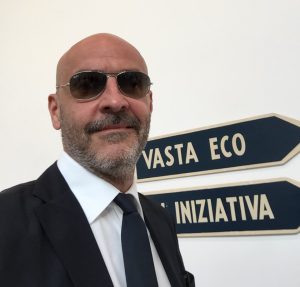Economic History course for Phd in Economics (16 hours)
The main idea of this course is to present a broad introduction to different fields of research – both on macroeconomic and microeconomic perspective – which actually are at the frontier of the field. The course focuses on some different broad topics. Another aim of the course is to introduce students to the discussion of virtues and limitations of different historical sources and methodologies.
Wednesday 29th March 2017: 16-18
Jochen Streb (University of Mannheim) – Does Social Security Crowd Out Private Savings? The Case of Bismarck’s System of Social Security
Topic: Welfare
Tuesday 2th May 2017: 15-17
Giovanni Federico – A tale of two globalizations: gains from trade and openness 1800-2010
Topic: Trade
Thursday 11th May 2016: 11-13
Michelangelo Vasta – The geography of innovation in Italy, 1861-1913: evidence from patent data
Topic: Innovation
Wednesday 17th May 2017: 12-14
Giovanni Federico – Traditional agriculture and the gender gap: evidence from Italy
Topic: Gender
Monday 22nd May 2017: 15-17
Alessandro Nuvolari (Sant’Anna School of Advanced Studies, Pisa) – “Uniting Souls” and counting skills: age heaping in the first Italian national censuses, 1861-1881
Topic: Human capital
Monday 30th May 2017: 12-14
Giovanni Federico – The terms of trade during the first globalization: an empirical analysis
Topic: Trade
Thursday 1st June 2017: 11-13
Michelangelo Vasta – What makes a successful entrepreneur? Historical evidence from Italy (XIX-XX centuries)
Topic: Entrepreneurship
Wednesday 7th June 2017: 11-13
Michelangelo Vasta – Can school centralization foster human capital accumulation? A quasi-experiment from early-20th-century Italy
Topic: Human capital
The “rules of the game” of the course are the following. First of all the course requires your active role in the discussion of the seminars. What I mean is that you make direct questions to the speakers during the seminars. Moreover, each student must write one extended Review Report (RR) for one of the paper presented. The RR should be articulated as follow: i) discuss context and research questions; ii) assess source, historical material and data; iii) provide a discussion of approach and methods; iv) suggest improvements and refinements for the analysis. Finally, all students have to organize themselves in groups (2 students, max 3) and prepare an Economic History Research Project (RP) which must contain: i) a well-defined research question; ii) sources to be used; iii) methods; iv) conclusions.
Final evaluation will be based on class participation (25%) and on the quality of RRs (25%) and RP (50%).

